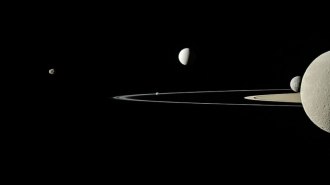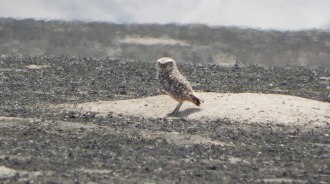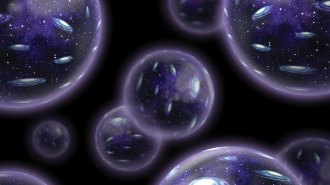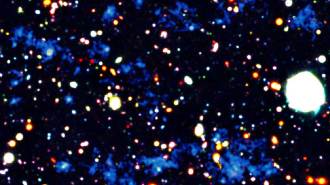Uncategorized
-
 Space
SpaceWith 20 new moons, Saturn now has the most of any solar system planet
The discovery brings Saturn’s moon tally to 82. The previous record-holder, Jupiter, has 79.
By Sofie Bates -
 Ecosystems
EcosystemsBurrowing birds create pockets of rich plant life in a desert landscape
Mounds of sand dug out by birds are hot spots for plants in Peru’s Atacama Desert, possibly providing a sheltered and moist area for seed germination.
-
 Physics
PhysicsPhysics Nobel awarded for discoveries about the universe’s evolution and exoplanets
Three scientists share the 2019 Nobel Prize in physics for revealing what makes up our cosmos and for finding the first planet orbiting a sunlike star.
By Emily Conover and Lisa Grossman -
 Humans
HumansNepal is reeling from an unprecedented dengue outbreak
As climate change opens new regions to mosquitoes, Nepal suffers an outbreak of the painful viral disease that has sickened more than 9,000 people.
-
 Health & Medicine
Health & MedicineDiscovery of how cells sense oxygen wins the 2019 medicine Nobel
Understanding the molecular switch that lets cells cope with oxygen has implications for everything from metabolism to wound healing.
-
 Climate
ClimateIn a climate crisis, is geoengineering worth the risks?
Some scientists say the world needs to reconsider some human-made ideas to cool the climate as dire warnings about the looming crisis ramp up.
-
 Health & Medicine
Health & MedicineThe U.S. narrowly eked out a measles win, keeping elimination status
The risk of measles, while low in the United States, still remains due to undervaccinated areas and international travelers importing the virus.
-
 Cosmology
CosmologyA new book explores how the concept of the multiverse has evolved
Tom Siegfried, author of ‘The Number of the Heavens,’ discusses what the multiverse has meant to great thinkers throughout history.
-
 Space
SpaceWhy just being in the habitable zone doesn’t make exoplanets livable
A reignited debate over whether a new planet is habitable highlights the difficult science of seeking alien life.
-
 Space
SpaceA new image reveals the structure of the cosmic web
Newly spotted tendrils of gas within a forming cluster of galaxies support scientists’ theory of the cosmos.
-
 Neuroscience
NeuroscienceDueling brain waves during sleep may decide whether rats remember or forget
In a slumbering rat, two distinct kinds of brain waves have opposite jobs.
-
 Health & Medicine
Health & MedicineMen with breast cancer have lower survival rates than women
Men with breast cancer don’t fare as well as women. To expand treatment options, the U.S. FDA is encouraging drug companies to include men in studies.